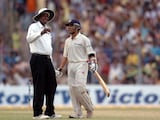The Supreme Court today agreed to examine the controversial Delhi High Court order acquitting a 22-year-old man in the Protection of Children from Sexual Offences case, saying use of the words 'sambandh banaya' (established physical relationship) in a minor's statement is not sufficient to establish an offence of sexual assault under Section 3 of the POCSO Act or Section 376 IPC.
The top court today issued notice on the plea against the High Court order. The Delhi High Court order had acquitted the man on the grounds that the phrase "sambandh" and "physical relation" cannot be interpreted as 'sexual intercourse'.
A Special Leave Petition has been filed against the Delhi High Court's order acquitting a 22-year-old man accused of raping a 14-year-old.
A bench comprising Justice Dipankar Datta and Justice AG Masih issued notice in a petition filed by NGO 'Just Rights for Children Alliance', returnable in four weeks.
Additional Solicitor General Archana Dave, appearing for the Delhi Police, informed the top court today that they support the petitioner's case and will file an appeal against the acquittal.
The trial court had sentenced the accused to life imprisonment by interpreting the phrase "sambandh" and "physical relation" to imply sexual intercourse and thereby sexual assault, given that the complainant was a minor and there was a considerable age difference between the two.
In the December 2024 order, the high court asserted that the leap from physical relations or 'sambandh' to sexual assault and then to penetrative sexual assault must be established by evidence and cannot be deduced as an inference.
"The mere fact that the survivor is below 18 years cannot lead to a conclusion that there was penetrative sexual assault. The survivor, in fact, used the phrase 'physical relations', but there is no clarity as to what she meant by using the said phrase," the court said in the judgement passed on December 23.
Even the use of the words 'sambandh banaya' is not sufficient to establish an offence under Section 3 of the POCSO Act or under Section 376 IPC. Though consent would not matter if the girl is a minor under the POCSO Act, the phrase 'physical relations' cannot be converted automatically into sexual intercourse, let alone sexual assault, the court held.
The high court said the benefit of doubt ought to be in favour of the accused and, therefore, ruled, the trial court's judgment completely lacks any reasoning and also does not reveal or support any rationale for the conviction.
The complaint in this case was lodged in March 2017 by the girl's mother, alleging that her 14-year-old daughter had been lured and kidnapped from her home by an unknown person.
The minor was found in Faridabad along with the accused, who was arrested and subsequently convicted for the offence of rape under IPC and penetrative sexual assault under POCSO in December 2023 and later awarded imprisonment for the remainder of his life.















